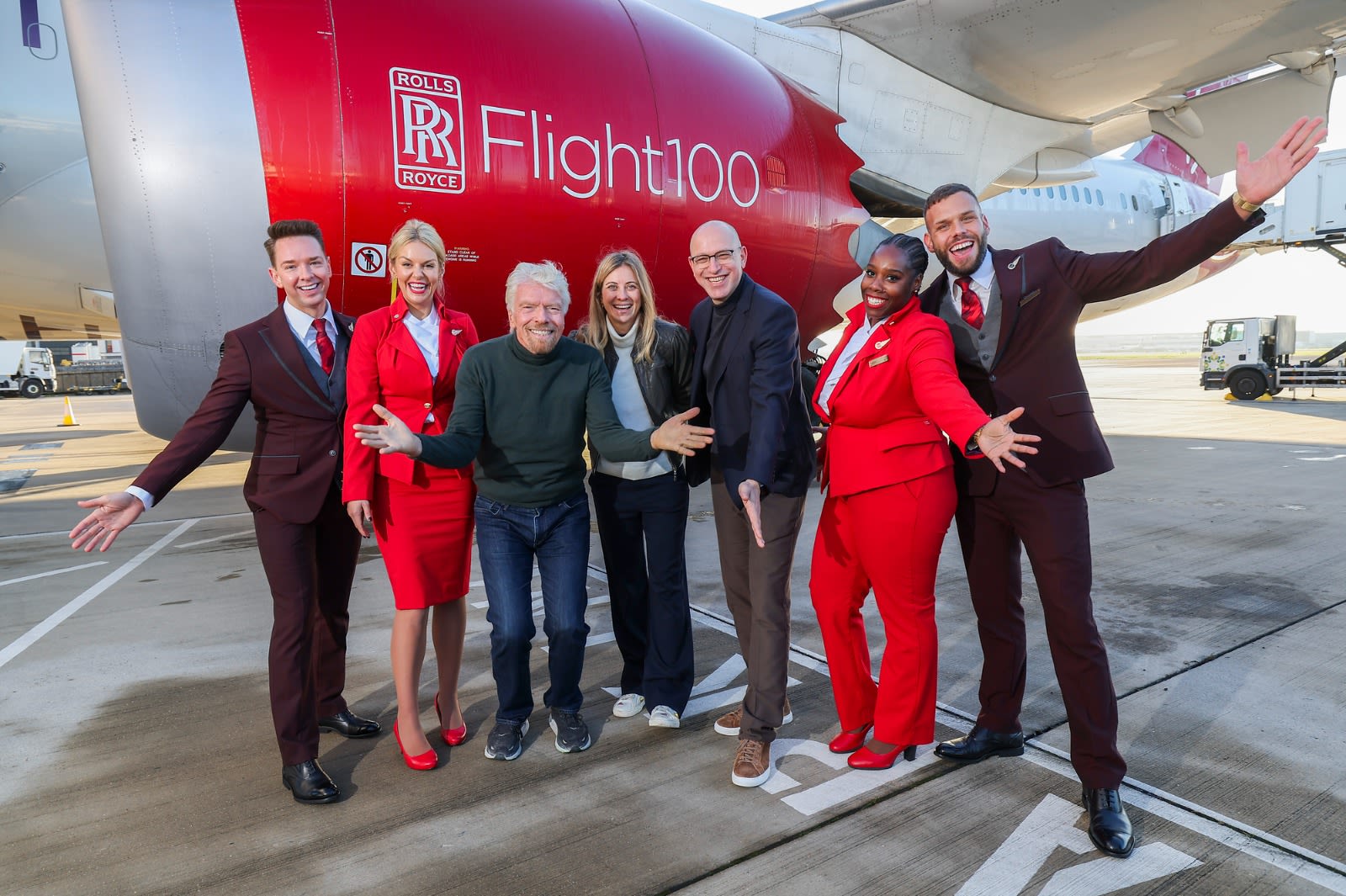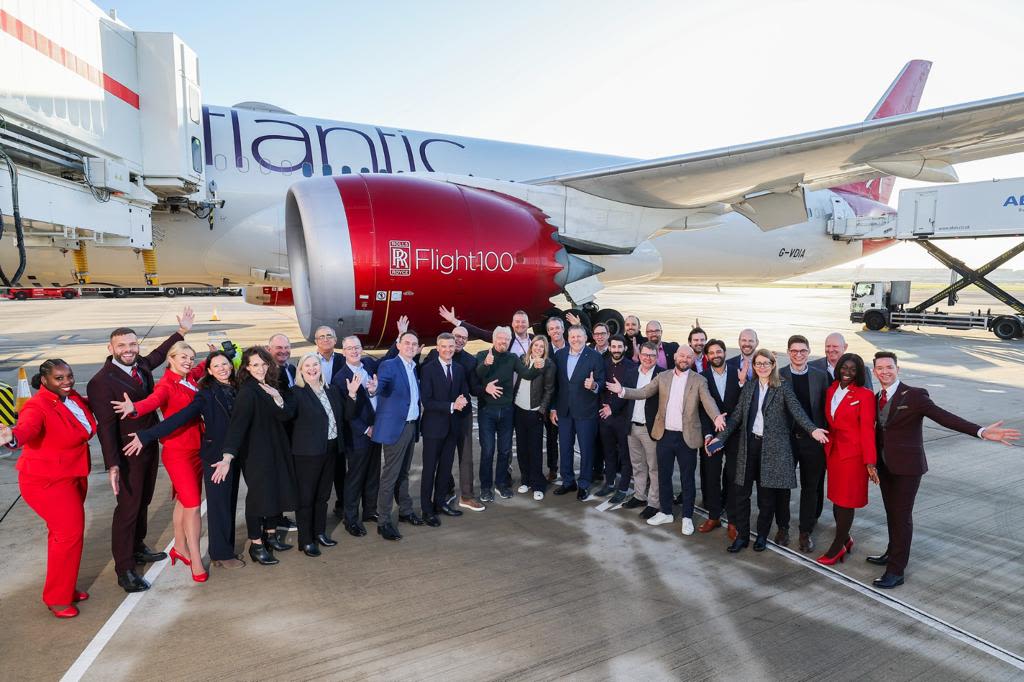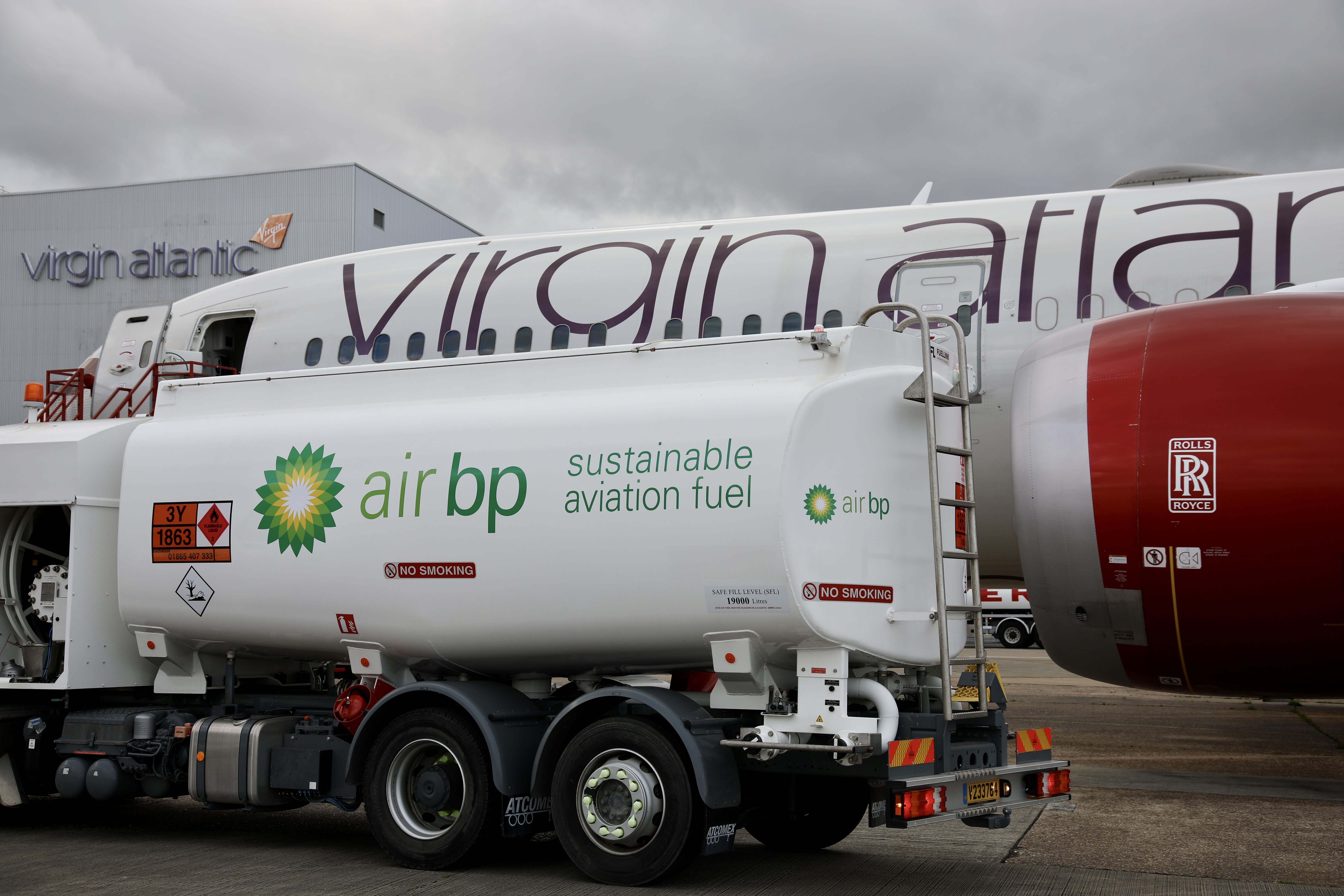Flight100: Virgin Atlantic flies its first 100% Sustainable Aviation Fuel flight
Virgin Atlantic’s 100% Sustainable Aviation Fuel (SAF) flight has successfully landed in New York City to demonstrate the capability of SAF as a safe alternative to traditional jet fuel, compatible with today’s engines, airframe and fuel infrastructure.
Shai Weiss, Chief Executive Officer, Virgin Atlantic said: “Flight100 proves that Sustainable Aviation Fuel can be used as a safe, drop-in replacement for fossil-derived jet fuel and it’s the only viable solution for decarbonising long haul aviation. It’s taken radical collaboration to get here and we’re proud to have reached this important milestone, but we need to push further. There is simply not enough SAF and it’s clear that in order to reach production at scale, we need to see significantly more investment. This will only happen when regulatory certainty and price support mechanisms, backed by government, are in place. Flight100 proves that if you make it, we’ll fly it.”
SAF has a significant role to play in the decarbonisation of long haul aviation, and pathway to New Zero 2050. The fuel, made from waste products, delivers CO2 lifecycle emissions savings of up to 70%, while performing like the traditional jet fuel it replaces.
Richard Branson, Founder, Virgin Atlantic added: “The world will always assume something can’t be done, until you do it. The spirit of innovation is getting out there and trying to prove that we can do things better for everyone’s benefit.
“Virgin Atlantic has been challenging the status quo and pushing the aviation industry to never settle and do better since 1984. Fast forward nearly 40 years, that pioneering spirit continues to be Virgin Atlantic’s beating heart as it pushes the boundaries from carbon fibre aircraft and fleet upgrades to sustainable fuels.
“I couldn’t be prouder to be onboard Flight100 today alongside the teams at Virgin Atlantic and our partners, which have been working together to set the flight path for the decarbonisation of long-haul aviation.”
Richard and Holly Branson were both on board the flight – read Richard's blog for his reflection on the significance of Flight100.
Right now, SAF represents less than 0.1% of global jet fuel used for flights. And current fuel standards only allow a 50% SAF blend in commercial jet engines. Flight100 proves that the challenge of scaling up production is one of policy and investment, and industry and government must move quickly to create a thriving UK SAF industry.
As well as proving the capabilities of SAF, Flight100 will assess how its use affects the flight’s non-carbon emissions with the support of consortium partners ICF, Rocky Mountain Institute (RMI), Imperial College London and University of Sheffield. The research will improve scientific understanding of the effects of SAF on contrails and particulates and help to implement contrail forecasts in the flight planning process. Data and research will be shared with industry where possible, and Virgin Atlantic will continue its involvement with contrail work through RMI’s Climate Impact Task Force, which is part-funded by Virgin Unite.
The SAF used on Flight100 is a unique dual blend; 88% HEFA (Hydroprocessed Esters and Fatty Acids) supplied by AirBP and 12% SAK (Synthetic Aromatic Kerosene) supplied by Virent, a subsidiary of Marathon Petroleum Corporation. The HEFA is made from waste fats while the SAK is made from waste plant sugars. SAK is needed in 100% SAF blends to give the fuel the required aromatics for engine function.
Virgin Atlantic is committed to finding more sustainable ways to fly. It already operates one of the youngest and most fuel and carbon efficient fleets in the sky. Flight100 builds on the airline’s 15-year track record for leading on development of SAF at scale. Collectively, industry and government must go further, to create a UK SAF industry and meet aviation’s 10% SAF by 2030 target, capitalising on the significant social and economic benefits it will bring – an estimated contribution of £1.8 billion in Gross Value Added to the UK and more than 10,000 jobs.
Visit Virgin Atlantic to find out more.



